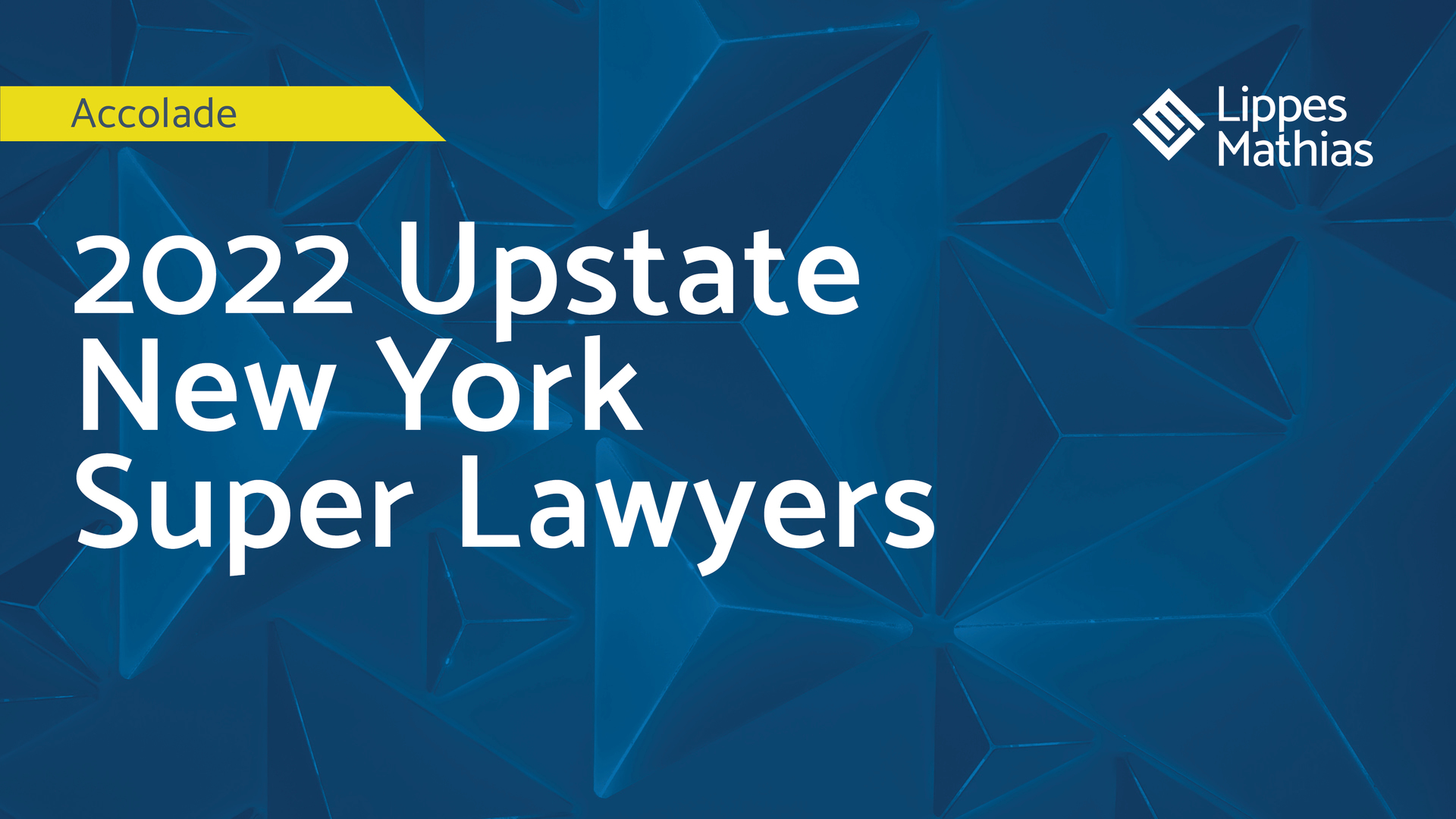New York State’s Overhaul of Laws Concerning Sexual Harassment in the Workplace Causes Employers to Reconsider Workplace Policies and Employment Contracts
July 6, 2018 |
Client Alerts
As a part of the state budget process, New York has recently enacted new and sweeping changes to the laws surrounding sexual harassment in the workplace. The changes concern both the public and private sector and obligations of New York employers relative to sexual harassment, including content of policies, training and agreements with current and prospective employees. In addition, employers can now be exposed to liability for sexual harassment perpetrated by non-employees in the workplace.
Model Sexual Harassment Policy
Every employer in New York State, as of October 9, 2018, will be mandated to institute a sexual harassment prevention policy and provide the policy in writing to all of its employees. The New York State Department of Labor (“Department”) is consulting with the New York State Division of Human Rights (“Division”) to provide a model sexual harassment policy (“Model Policy”). The Model Policy will provide a minimum standard for the mandatory sexual harassment policies. If an employer chooses not to adopt the Model Policy, the employer must adopt a policy equal to or exceeding the requirements of the Model Policy. The Model Policy must include the following:
- a statement prohibiting sexual harassment;
- examples of prohibited conduct that would constitute unlawful sexual harassment;
- information concerning the federal and state statutory provisions concerning sexual harassment and remedies available to victims of sexual harassment and a statement that there may be applicable local laws;
- a standard complaint form;
- a procedure for the timely and confidential investigation of complaints and ensuring due process for all parties;
- a statement informing employees of their rights of redress and all available forums for adjudicating sexual harassment complaints administratively and judicially;
- a statement that sexual harassment is considered a form of employee misconduct and that sanctions will be enforced against individuals engaging in sexual harassment and against supervisory and managerial personnel who knowingly allow such behavior to continue; and
- a statement that retaliation against individuals who complain of sexual harassment or who testify or assist in any proceeding under the law is unlawful.
We would recommend that employers require employees to sign an acknowledgment that they have received the sexual harassment policy and that the acknowledgment forms are maintained for at least three years following termination of employment.
Model Sexual Harassment Training
Every employer in New York State, as of October 9, 2018, will also be required to implement a sexual harassment training program. The training program must be “interactive” and provided to employees on an annual basis. The Department and the Division will, once again, work together to provide a model training program (“Model Training”). The Model Training will be a minimum standard. An employer electing not to institute the Model Training will need to provide training with requirements equal to or exceeding the Model Training. The Model Training must include the following:
- an explanation of sexual harassment;
- examples of conduct that would constitute unlawful sexual harassment;
- information concerning the federal and state statutory provisions concerning sexual harassment and remedies available to victims of sexual harassment;
- information concerning employees' rights of redress and all available forums for adjudicating complaint; and
- information addressing conduct by supervisors and additional responsibilities for such supervisors.
The law does not explain or define “interactive.” We anticipate the Model Training will explain whether “interactive” training must be live or web-based and whether there will be exceptions permitted based on the size of workforce.
Prohibition against Mandatory Arbitration Clauses
Any contractual clause, entered into on or after July 11, 2018, mandating arbitration in order to resolve a claim or allegation regarding sexual harassment will be prohibited. The prohibited clause will be considered null and void but remaining lawful provisions of the contract will remain enforceable. However, if language in a collective bargaining agreement conflicts with the prohibition on sexual harassment mandatory arbitration clauses, the collective bargaining agreement will control. The prohibition on sexual harassment mandatory arbitration agreements does not affect the validity of other mandatory arbitration clauses.
However, it is important to note that the Federal Arbitration Act may preempt state law and render an arbitration clause concerning sexual harassment enforceable.
Nondisclosure Agreements Prohibited
When resolving or settling a claim whose “factual foundation involves sexual harassment,” any clause which purports to stop disclosures relating to the sexual harassment are prohibited. Such clauses will only be allowed if it is the complainant’s “preference” to be bound by confidentiality. The complainant must be notified of the existence of the clause and be given twenty-one (21) days to consider the clause. If the complainant prefers confidentiality and agrees to the clause, the clause will not become binding for an additional seven (7) days. During this period, the clause is not enforceable and the complainant has the ability to opt-out of the clause.
With this change in the law, the 21 day consideration period and seven day revocation period (previously only required in federal age discrimination claims) will now need to be included in agreements involving sexual harassment claims which include confidentiality provisions.
Liability for Nonemployees
One of the most significant changes now makes employers liable for sexual harassment in the workplace for certain nonemployees when the employer, its agents or supervisors knew, or should have known, of the sexual harassment and failed to take “immediate and appropriate action.” The nonemployees an employer is liable for are those nonemployees who are providing services in the employer’s workplace under a contract. These nonemployees include, but are not limited to, contractors, subcontractors, vendors and consultants. When evaluating the employer’s conduct in regard to the nonemployees, the extent of the employer’s control and other legal responsibilities owed by the employer to the nonemployee will be considered.
Bidding
In order for a bid to the state or any state department/agency to be considered or awarded, the bidder must attest to having implemented both a written sexual harassment policy and to having provided an annual sexual harassment prevention training program to all of its employees. Where competitive bidding is not required, the state or department/agency may, in its discretion, require the bidder to make the same attestation. The penalty for the misrepresentation or falsity of these attestations is perjury.
Reimbursement of State Funds
Any employee of the state who is found to be “personally liabl[e] for intentional wrongdoing related to a claim of sexual harassment” will be liable to reimburse the state for his/her portion of the judgement. If the employee fails to reimburse the state, or is no longer an employee, the state may garnish their wages, pursuant to a money judgement.
Next Steps
Employers must be in compliance with the changes in the law related to sexual harassment policies and training by October 9, 2018. We will update you once the Model Policy and Model Training are released. However, in the interim, we recommend that employers who currently have sexual harassment policies and training procedures should review them for compliance with these new requirements and employers who do not have such policies or training should begin the process to develop them.
For any assistance with the preparation of these policies, the implementation of training or other obligations of employers as a result of these changes in the law, please contact our attorneys. Amy Habib Rittling and Vincent Miranda in Buffalo and Robert Ganz and Beth Carey in Albany are able to help you ensure your workplace is ready.
Related Team
Related Content

Press Releases
2022 Upstate New York Super Lawyers Recognizes 48 Attorneys from Lippes Mathias
August 23, 2022


Corporate Blog
NLRB General Counsel’s Memorandum Foreshadows Additional Changes to NCAA Athletics
October 26, 2021

Press Releases
2021 Upstate New York Super Lawyers Recognizes 39 Attorneys from Lippes Mathias
August 20, 2021


Client Alerts
Restaurant Revitalization Fund Applications Go Live
April 30, 2021





